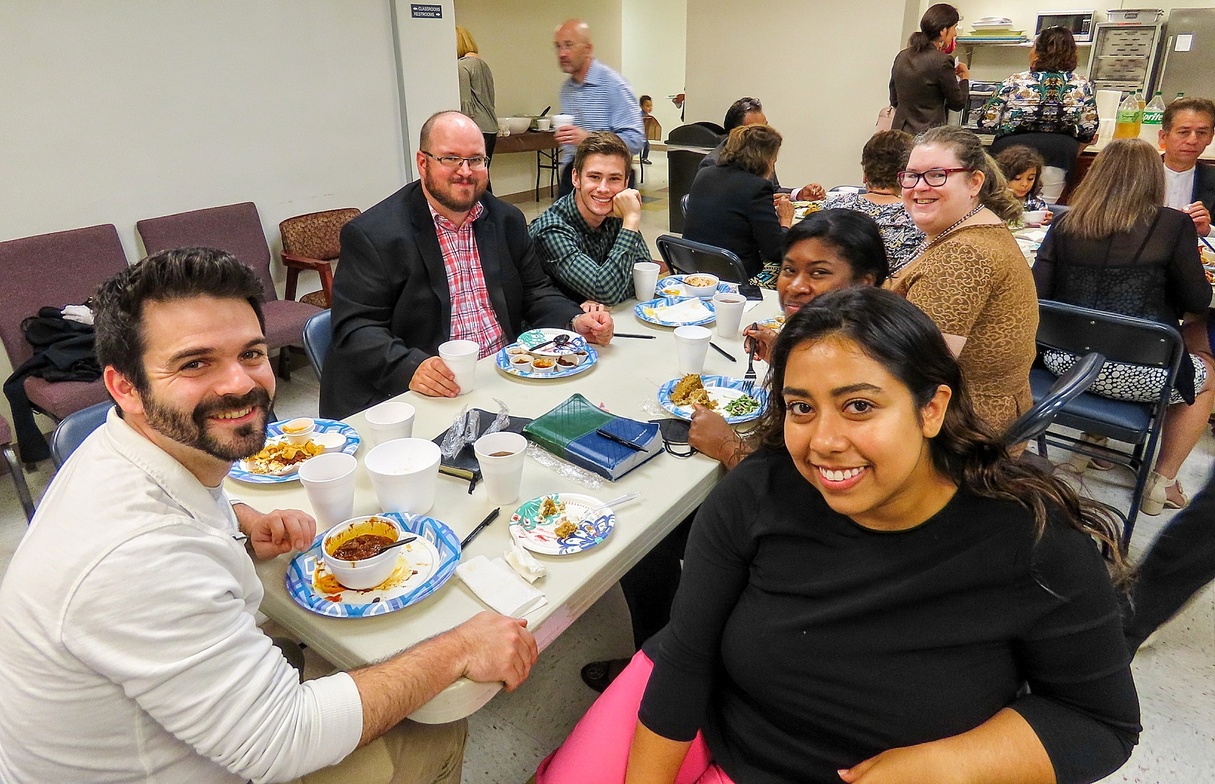Believers Share Fellowship Meals


“They devoted themselves to the apostles’ teaching and to fellowship, to the breaking of bread and to prayer.” Acts 2:42. To whom does this familiar passage refer? Almost certainly, it describes many of the “God-fearing Jews from every nation under heaven.” Acts 2:5; see id. v. 9 (listing fifteen different regions and peoples). They had gathered in Jerusalem for Pentecost, the 50th day after Passover, to celebrate the end of the grain harvest by bringing its first fruits to the Temple in Jerusalem. See Lev. 23:15-22.
While there, these Jews heard Peter and other disciples of Jesus, explain - in several native languages from around the Mediterranean – that their long-expected Messiah had arrived, been crucified but then returned to life. Many acknowledged this good news by accepting Jesus via baptism. Acts 2:1-41. Soon, Jesus-believers expanded beyond Jerusalem to include Samaritans, a government official from Ethiopia, a Roman soldier and his household, and Gentiles in the Syrian city of Antioch. Acts 8:5–40, 10:23-48, 11:19-21.
Importantly, in Jerusalem and elsewhere, early Christians worshiped, fellowshipped and ate together despite cultural and linguistic barriers. Many of those immersed on or shortly after Pentecost apparently stayed longer in Jerusalem, where they ate “together with glad and sincere hearts.” Acts 2:42, 46. Likewise,believers of diverse ethnic and religious backgrounds ate together elsewhere. See, e.g., Gal. 2:12-14 (Antioch); 1 Cor. 10:14-22, 11:17-34 (Corinth, a Greek city); Ro. 14:1-22 (Rome, the imperial capital). These texts do not indicate that when believers gathered to eat together, they experienced miraculous powers of communication. Indeed, these passages show that at these gatherings differing ethnic and religious backgrounds caused problems. Despite the challenges, Apostle Paul urged them “not to destroy the work of God for the sake of food” but instead to “make every effort to do what leads to peace and mutual edification.” Ro. 14:17-20.
Our congregation should follow the positive parts of these early Christians’ examples. Like theirs, our faith community is ethnically, culturally and linguistically diverse. With “righteousness, peace and joy in the Holy Spirit,” God calls us to tear down walls— ethnic, social and linguistic—to form a unified people. Ro. 14:17.
As in early Christian communities, our fellowship meals offer an important opportunity to do this by showing our affection for each other. These meals generally occur every month on the second Sunday – including on September 14. Plan to bring food to share and to enjoy this fellowship!